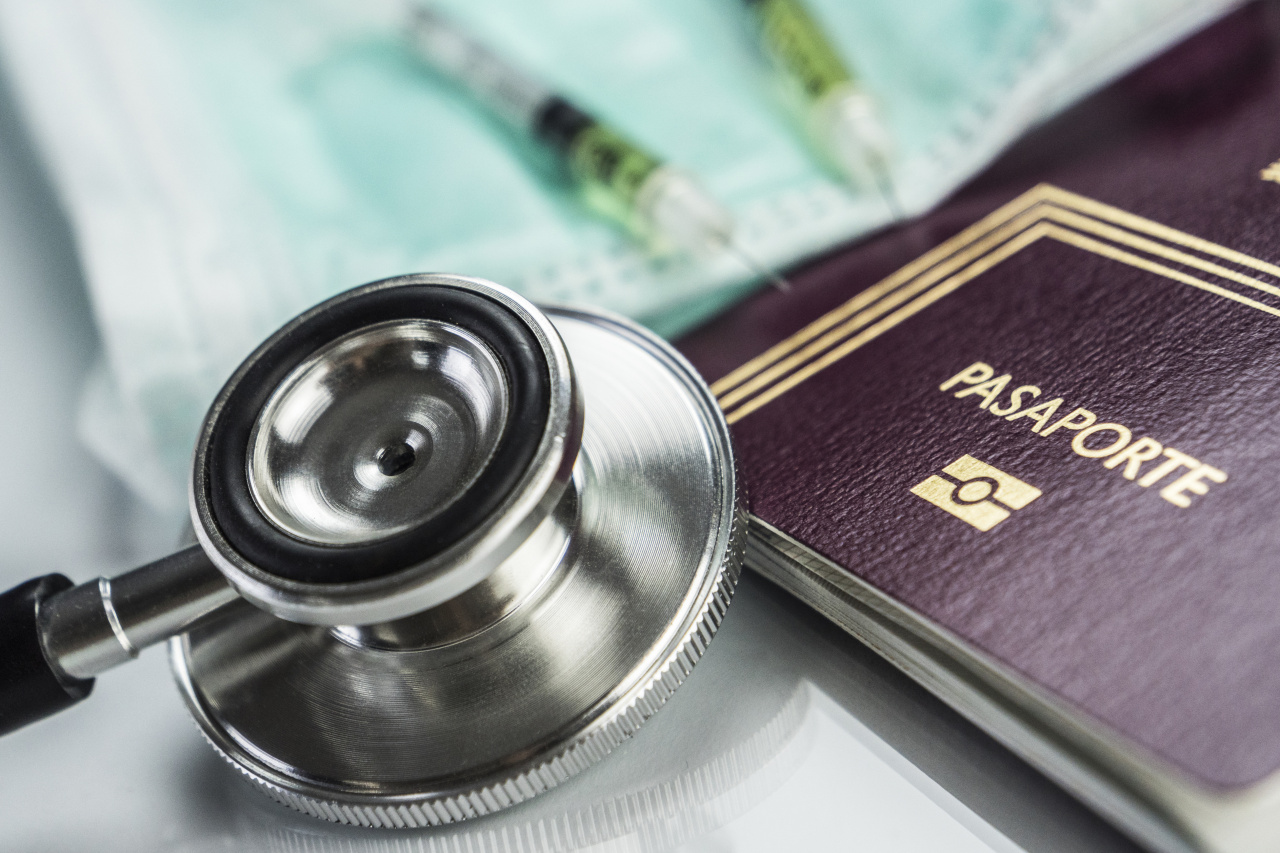Health and tech giants meet for ‘vaccination passports’
Global industry leaders look to collaborate, while some warn developments may lead to greater divide
By Kim Hae-yeonPublished : Jan. 15, 2021 - 12:57

To combat the pandemic in 2021, private industries and nonprofit organizations are developing vaccine passports or identification cards that can serve as proof of inoculation to governments and businesses, including airlines.
The ID card targets both domestic and international purposes of use, such as simply going out to theaters or stadiums, or traveling abroad to neighboring countries.
On Thursday, Microsoft, Salesforce and Oracle, in collaboration with the US health care nonprofit Mayo Clinic, announced that it will jointly work on developing globally standardized passports -- a coalition also known as the Vaccination Credential Initiative.
The VCI project members have announced that the aim is to accelerate a technology that enables a globally standardized system for individuals, to help obtain their immunization credentials safely and efficiently.
A vast array of supporting sectors, such as digital security and data protection service platforms and institutions, are also joining hands sequentially with the VCI. The Commons Project, a nonprofit organization from Switzerland and also a member of the VCI, plans to provide backup on interoperating health data to the World Health Organization in scaling global standards and guidelines.
Vaccine passports are expected to be issued in the form of smartphone apps when they are ready for the public. However, the information collected in such tremendous amounts may lead to governments monitoring individuals’ private information via smartphones, in the name of tracking vaccinations, according to information technology experts.
The bigger debate lies not just in the issue of individual privacy, but the existence of the globally standardized program itself.
Growing concerns are being expressed on the “vaccine divide,” which could potentially act as a shackle for those countries or individuals who have not been inoculated.
For instance, if vaccine passports are widely distributed and accessible throughout the globe, people from developing countries that have not been vaccinated will be stranded, forming a de facto means of scarlet lettering.
Countries such as Canada have expressed that the government has no plans to implement vaccine passports on a federal level. Canada Prime Minister Justin Trudeau has been a skeptic on the issue, commenting that the measure could have “real divisive impacts” in an interview at the Reuters Next Conference.
Trudeau added that “there are a broad range of reasons why someone might not get vaccinated.” Canada expects some 80 million doses of vaccines to arrive this year.
Meanwhile, Korean companies are currently developing their own vaccine passports as well, including Gooddoc, which announced Friday that it will launch the QR-based vaccine passport service Gooddoc Pass.
Gooddoc is a subsidiary of Carelabs, which also developed the Mask Scanner app last year. The app provided public mask inventory notifications integrated with a GPS location service in Korea.
By Kim Hae-yeon (hykim@heraldcorp.com)
The ID card targets both domestic and international purposes of use, such as simply going out to theaters or stadiums, or traveling abroad to neighboring countries.
On Thursday, Microsoft, Salesforce and Oracle, in collaboration with the US health care nonprofit Mayo Clinic, announced that it will jointly work on developing globally standardized passports -- a coalition also known as the Vaccination Credential Initiative.
The VCI project members have announced that the aim is to accelerate a technology that enables a globally standardized system for individuals, to help obtain their immunization credentials safely and efficiently.
A vast array of supporting sectors, such as digital security and data protection service platforms and institutions, are also joining hands sequentially with the VCI. The Commons Project, a nonprofit organization from Switzerland and also a member of the VCI, plans to provide backup on interoperating health data to the World Health Organization in scaling global standards and guidelines.
Vaccine passports are expected to be issued in the form of smartphone apps when they are ready for the public. However, the information collected in such tremendous amounts may lead to governments monitoring individuals’ private information via smartphones, in the name of tracking vaccinations, according to information technology experts.
The bigger debate lies not just in the issue of individual privacy, but the existence of the globally standardized program itself.
Growing concerns are being expressed on the “vaccine divide,” which could potentially act as a shackle for those countries or individuals who have not been inoculated.
For instance, if vaccine passports are widely distributed and accessible throughout the globe, people from developing countries that have not been vaccinated will be stranded, forming a de facto means of scarlet lettering.
Countries such as Canada have expressed that the government has no plans to implement vaccine passports on a federal level. Canada Prime Minister Justin Trudeau has been a skeptic on the issue, commenting that the measure could have “real divisive impacts” in an interview at the Reuters Next Conference.
Trudeau added that “there are a broad range of reasons why someone might not get vaccinated.” Canada expects some 80 million doses of vaccines to arrive this year.
Meanwhile, Korean companies are currently developing their own vaccine passports as well, including Gooddoc, which announced Friday that it will launch the QR-based vaccine passport service Gooddoc Pass.
Gooddoc is a subsidiary of Carelabs, which also developed the Mask Scanner app last year. The app provided public mask inventory notifications integrated with a GPS location service in Korea.
By Kim Hae-yeon (hykim@heraldcorp.com)









![[Kim Seong-kon] Democracy and the future of South Korea](http://res.heraldm.com/phpwas/restmb_idxmake.php?idx=644&simg=/content/image/2024/04/16/20240416050802_0.jpg&u=)








![[KH Explains] Hyundai's full hybrid edge to pay off amid slow transition to pure EVs](http://res.heraldm.com/phpwas/restmb_idxmake.php?idx=652&simg=/content/image/2024/04/18/20240418050645_0.jpg&u=20240418181020)

![[Today’s K-pop] Zico drops snippet of collaboration with Jennie](http://res.heraldm.com/phpwas/restmb_idxmake.php?idx=642&simg=/content/image/2024/04/18/20240418050702_0.jpg&u=)